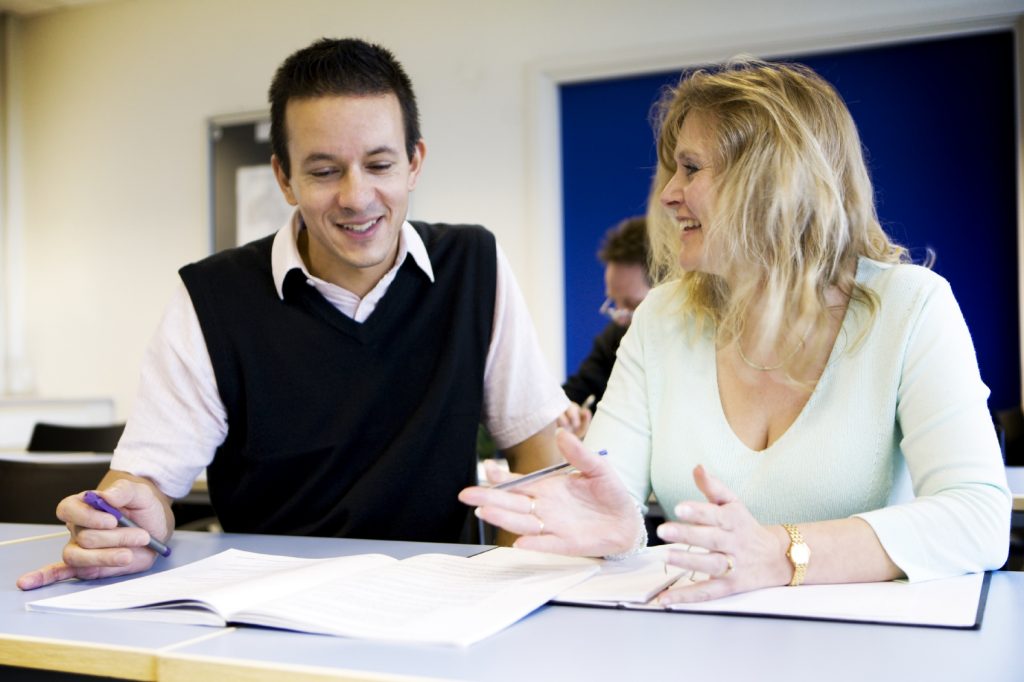
“Trainers are born, not made”
This blog relates to the unit TAEDEL411 Facilitate vocational training unit from the course TAE40122 Certificate IV in Training and Assessment.
Can we really teach just anybody to be a trainer? Can we teach just anybody to be a concert pianist? We can all agree that it



28 comments
Steven James Males
Trainers can be born but also can be taught. If someone has the passion and drive to become a trainer, then anything is possible in the VET industry. I developed my passion to become a trainer through, teaching apprentices on the job as a tradesman and becoming a scout leader. In my current role, I love helping new staff explaining how the systems work and how to perform their role effectively.
Bec
I don’t think everyone is able to become a trainer. It depends on so many factors…communication, adaptability, knowledge and skills, motivations. Not all of these things are teachable in full. Many things are teachable and people can improve in the areas that are required for becoming a trainer if they have the motivation for it.
Rach T
A great trainer shows leadership and compassion and provides stability as well as support to there students in many different ways. As well as showing these characteristics a trainer must have experience and knowledge in the field they are teaching but also know when to ask for help themselves.
Matilda T
If somebody has passion, knowledge and desire to teach, they can become a trainer. As long as someone has strong communication skills (which can be developed), a person can become a trainer.
Lan Truong
The statement is incorrect.
Growing up you will show interest in what you want to do with your life. Then you have tutoring to support or develop your skills.
For example, you need to show passion in your choice of career. Different roles require basic foundation in order to succeed.
To be a trainer you need skills in communication to support your learner cohort.
Samuel Cawley
I don’t completely agree that trainers are born and not made. Some people are just born with the skills of empathy, patience, communication skills etc. But for most people it takes time and effort to learn how to teach well. Having personal skills at your nature helps you to learn faster but still will require learning. Every trainer has to be a learner at some point in their teaching journey.
The main element that I agree with is the passion for being a trainer. That is often something that a person either has or they don’t. You can teach someone until they are proficient but without the passion you will often see them perform to an poor level, despite being technically proficient.
Daisy Alexander
This is a toughie – a classic nature vs nurture scenario. In line with a couple of the responses I have seen I believe many people are naturally suited to a training role, but this doesn’t mean that others who don’t see themselves as natural teachers, leaders or communicators may not excel in the same role with training and support.
Kate J
I agree that both skills can be taught, but to succeed and be good at it requires more than just the training/education.
Norm Siggee
I concur with the comments already made. Being a great trainer is a reflection of our passion for developing a person’s skills which will meet their desired goals for their professional and personal development.
Kate Grajales Ochoa
I think that whilst some people are born with natural talents and abilities, that does not take away from an individuals ability to grow and learn, and adapt into something new.
Jaime
I think training, like any skill, can be taught. I do think however, like most things; the willingness and desire to learn must be present. If these are not present, I think even a ‘natural trainer’ may not be as effective as a trainer who has learnt and utilised their passion.
NATHAN COSFORD
I think a trainer needs to be adaptable to the needs of their students, while still knowing the core concepts that must be understood. Having practical experience in your field before training others in it is vital, as you know the areas that can be dealt with quickly and superficially as well as the areas that must be thoroughly understood by the students.
Michelle Travers
Oooh that is a tricky one. Trainers can be taught operationally how to train and the mechanics of training, however it is the talent, passion and innovation that trainers bring to training is what ignites the learning process.
Kevin Owen
The main criteria for a good trainer is communication. Communication that can be adapted to fit different types of people. One communication style will not fit the next person and so on. If a trainer understands why they are doing what they are doing, why they are training their course and topic then they will instinctively find a way to communicate that.
Melissa Knight
A great trainer is someone who is passionate about the subject. Passion, enthusiasm and dedication to improving knowledge in that area are clearly evident when you have a great trainer. As a student, it is easier to learn, and more enjoyable, when the trainer is all of the above.
Crystal Petzer
Totally agree, a great trainer will make a huge difference in how the student remembers and is passionate about what they can do
Amy
I feel this is very true, definitely some people are more born to be trainers than others
Julie Dovey
For a trainer to be great, they must truly care about their learners/students. They need to be compassionate, reassuring confidence builders who believe in what they are teaching. This way our genuine love for our area of expertise can be conveyed and our learners can see their own potential within this career path and become excited about their own growth and development.
Merissa Pye
A great trainer is a person who can turned lived experience into a shared learning opportunity.
Encompassing their own experiences with the learning content and imparting the important and relevant context that the learner needs to believe in the trainer and by extension the learning they are undertaking from them.
Katie Beer
This article focuses on the fact that true trainers are natural at the skill of course delivery. Of course this is not quite true, whilst one is mastering the skills of their profession, they can embark on increasing their skills in teaching. The act of teaching actually can be such that the teacher is learning twice and therefore gaining more mastery of their skill. The support of courses such as TAE can help a would be trainer increase their skills in training.
Catherine
Trainers are effective when they inject passion and fun into their delivery.
Catherine
A great trainer has excellent subject matter skill and experience and is a high level communicator, passionate and fun!
Catherine Rumberg
Beside Subject Matter expertise and experience, the best trainers are great communicators, passionate and fun.
Katie
I couldn’t agree more with the above. It takes a certain person with certain qualities to be able to train a variety of people with different needs in a way that they all achieve the outcomes of the course
Tricia Kenny
Agreed some trainers are born, however I believe training can be taught due to personal experience as someone who had to overcome a fear of public speaking. I believe techniques can be taught depending on the student.
Trudy Osborne
A great trainer is someone who shows passion and expertise in the field they are training. Someone who can engage and keep attention of their trainees and the trainee wanting to learn more.
Kaylee D'Lanza
I believe that a great trainer is someone who not only has extensive knowledge of their subject but who also has a passion for that subject and hence are excited to pass on their knowledge to others.
A great trainer needs to not only have excellent communication skills, but also excellent insight and empathy, someone who can put themselves in the shoes of others and understand how their students are felling and what their struggles are in order to best help them.
A trainer needs a positive attitude and an open, non bias attitude, someone who is willing and able to see each student as an individual and accept that person for who they are. Great trainers have a desire to continually further their knowledge, including being open to accepting and acting upon feedback in a positive manner.
I believe an excellent trainer is on who has a genuine and deep seeded desire to see her students succeed and is willing to assist that student to get the best positive outcome.
Ari S
A great trainer is someone who can prioritise their students, facilitating learning through a multitude of mediums appropriate for different learning styles.
A great trainer will be authentic, empathetic and patient.